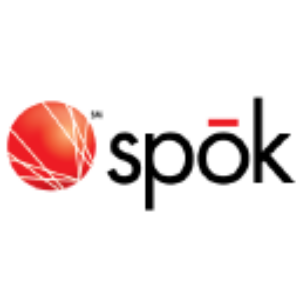12th Annual Spok Survey Reveals the State of Healthcare Communications in 2022
200+ healthcare industry professionals weigh in on clinician burnout, the impact of COVID-19 on clinical communications, and more
The survey is designed to assess how clinical communication is handled in
“While it remains a challenging time for healthcare, especially as COVID-19 evolves from a pandemic to an endemic condition, we know that efficient communication is important now more than ever,” said
Current communication challenges and devices
-
For the third year in a row, respondents cited budget and resource constraints as the No. 1 obstacle to advancing hospital communications. Consistent with previous years, this obstacle far outranks all other challenges in advancing hospital communications (
62% ). - Smartphones continue to be the No. 1 supported device for clinical communications, but for the first time since we started our survey, their prevalence has shown a slight decrease. Instead, Wi-Fi phones are gaining popularity, perhaps indicating a move toward hospital-issued devices replacing BYOD (bring your own device). Pagers remain important tools for hospitals and health systems, with the use of encrypted pagers gradually increasing and virtual pagers (sending messages from a paging service directly to a smartphone) making an appearance.
-
About
80% of healthcare professionals surveyed have some level of concern that patient information and proprietary health system data are being communicated via unsecure or personal communication tools. This is consistent with the level of concern expressed in 2021.
Clinician burnout and the role of communications
-
Approximately
94% of respondents believe levels of burnout have increased at least moderately since the start of the COVID-19 pandemic. -
Additionally, more respondents rated that level of burnout as “a great deal” in 2022 than in 2021 (
35% vs.28% ). Responding physicians, nurses, and other clinicians overwhelmingly call burnout “a public health crisis,” with88% of respondents strongly or somewhat agreeing with the statement. This is down slightly from the92% of clinicians who said burnout is “a public health crisis that demands urgent action” in 2019. -
This year we added “addressing staff concerns” to our list of strategies to mitigate burnout and it was the top-rated solution (
86% ), followed closely by “improved support from leadership” (81% ).
COVID-19 impact on clinical communications
-
Consistent with previous years, more than one-third (
35% ) of respondents believe COVID-19 impacted PHI being communicated via unsecure or personal communication tools. Less than20% reported that the pandemic had no impact. -
With more than half of respondents (
51% ) reporting their organization’s contact center contributed considerably or a great deal to the patient experience during the COVID-19 pandemic, it is further indication that healthcare leaders view the contact center as the communication hub within their organizations. -
In 2021,
48% of respondents said they had paused projects during the pandemic. Today,52% say it’s “business as usual” for IT communication projects, with only15% saying they still have projects paused due to COVID-19 or budget issues. We see this as a positive indication that health systems are recovering from the negative financial impact of the pandemic.
The responses from the 2022 survey yield valuable information that can help the healthcare industry tackle their biggest communication challenges and guide planning efforts in the coming months and years. Although the mix of communication devices will continue to shift in the future, the value of having a single platform to communicate with all devices will be key. Encrypted and secure communication via smartphones, pagers, and other devices remains essential, especially in these unpredictable times when fast decision-making is required. If you’re interested in more survey results you can download the report here.
About Spok
View source version on businesswire.com: https://www.businesswire.com/news/home/20221024005058/en/
+1 (952) 451-1892
Jill.smith@spok.com
Source:







